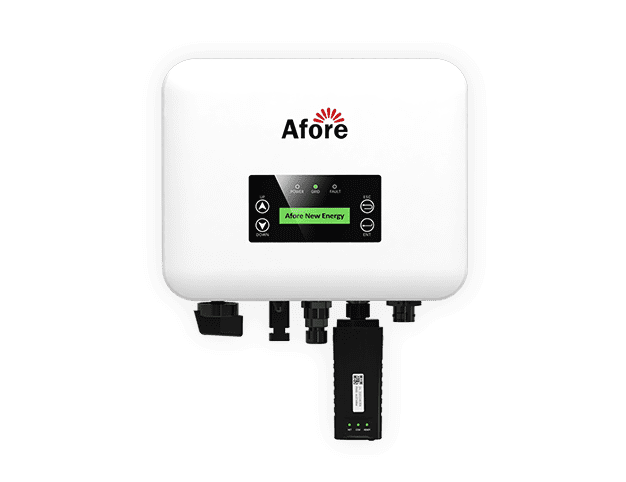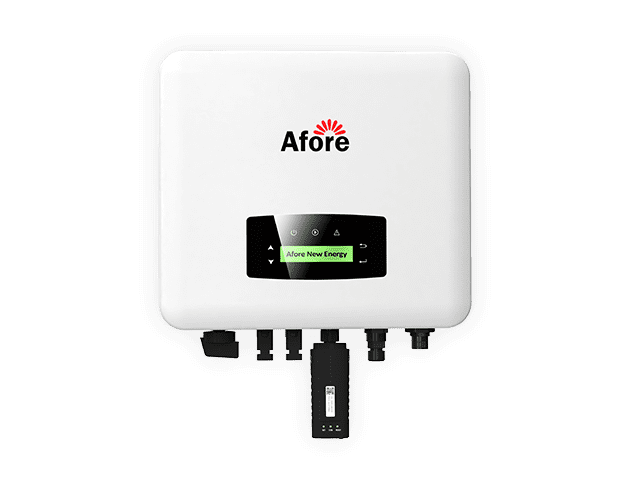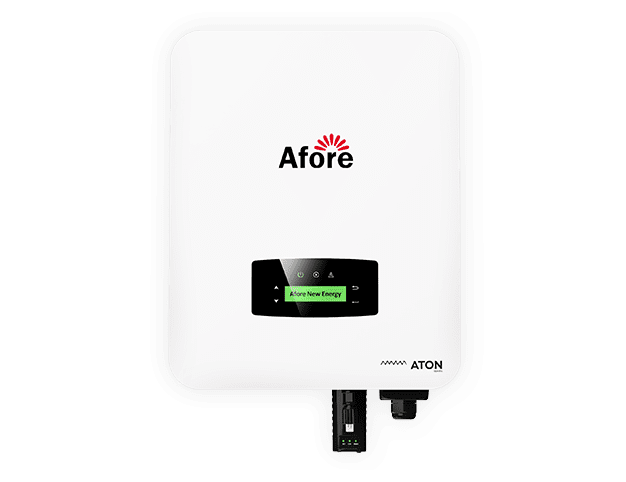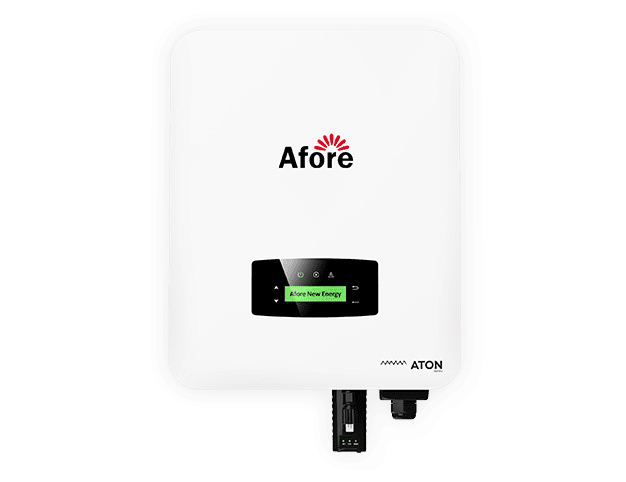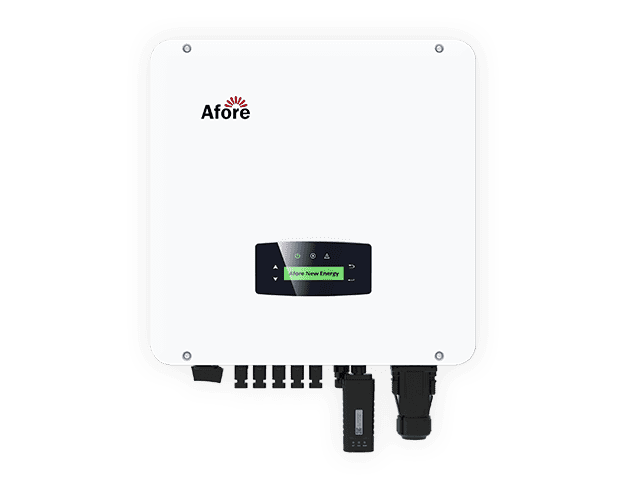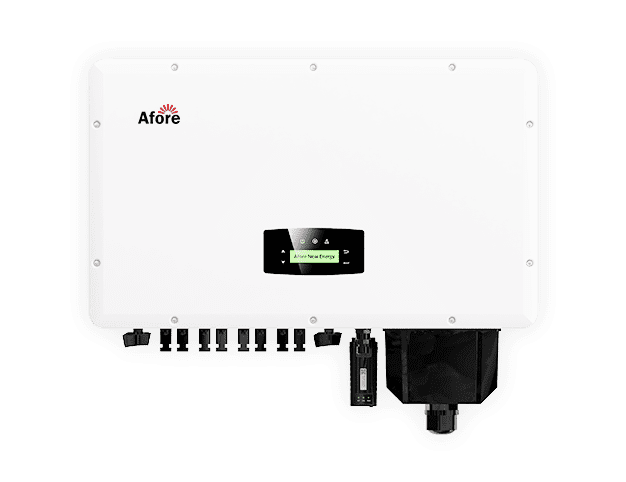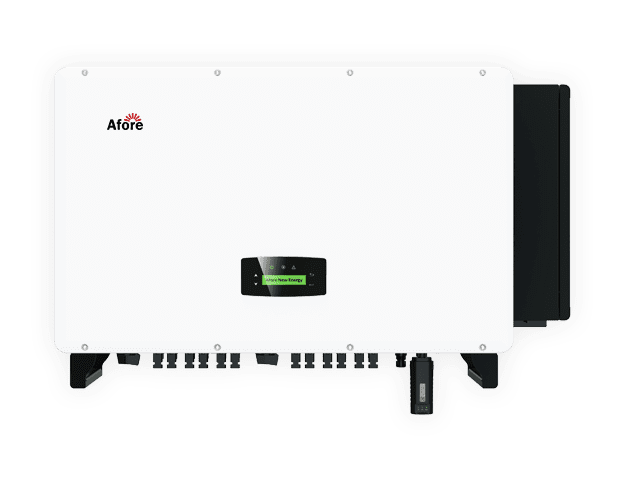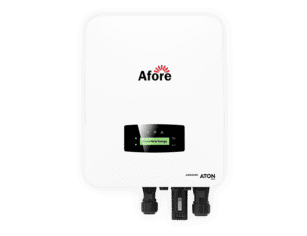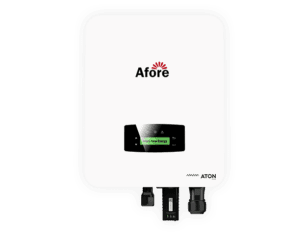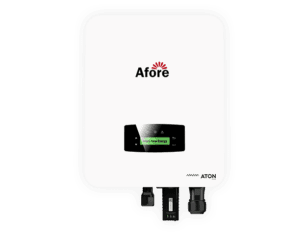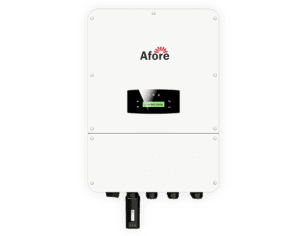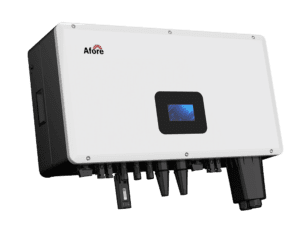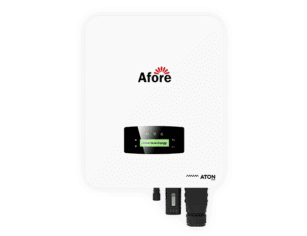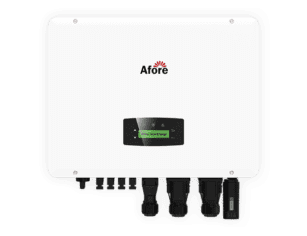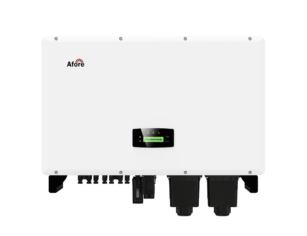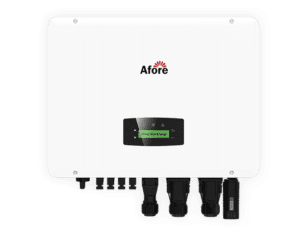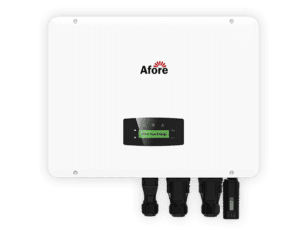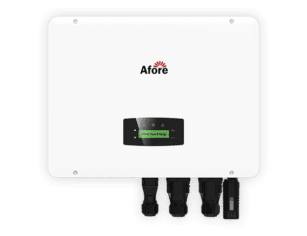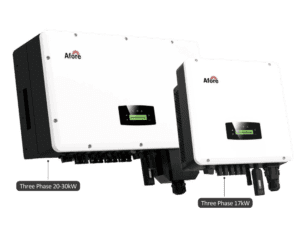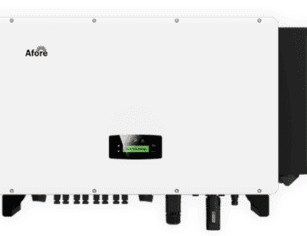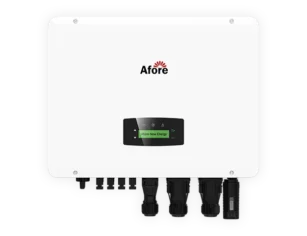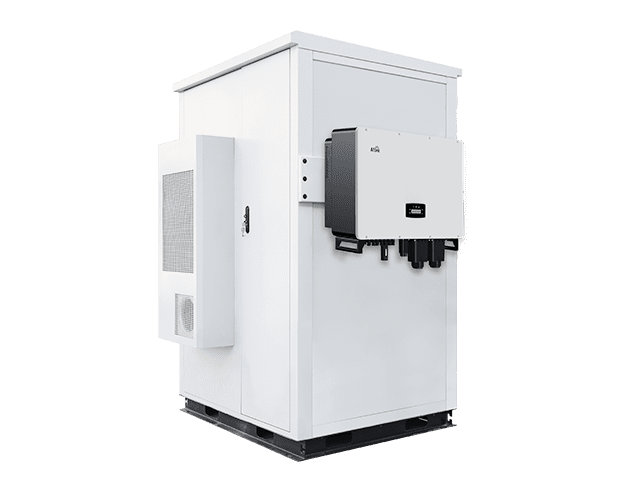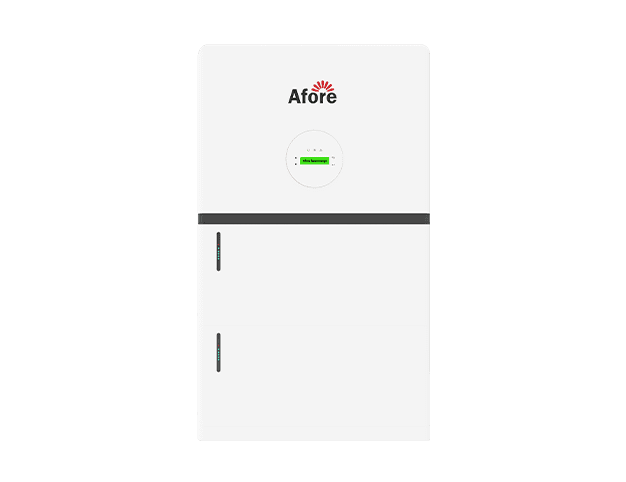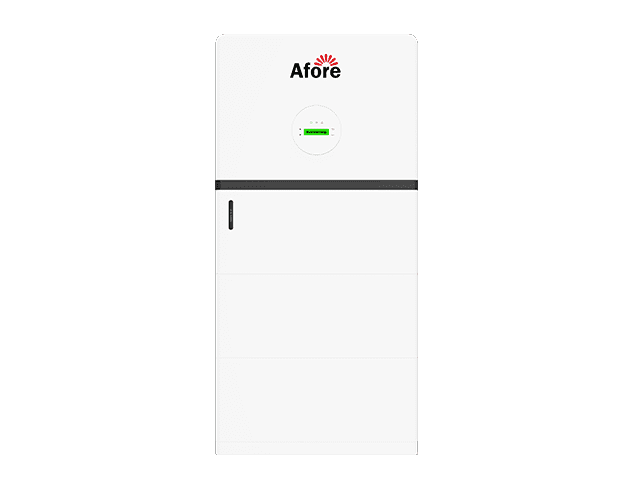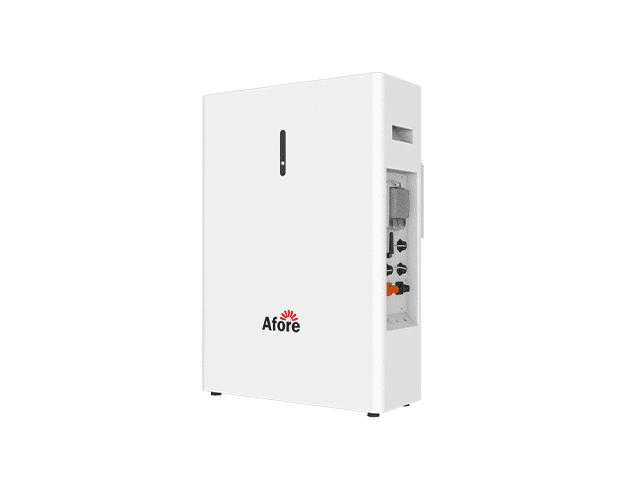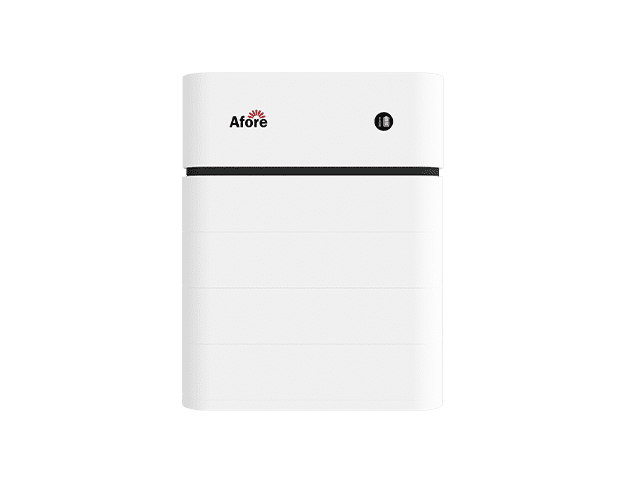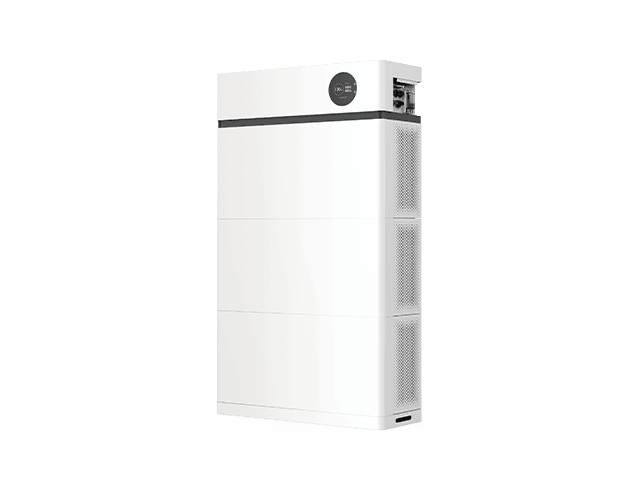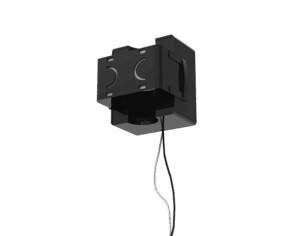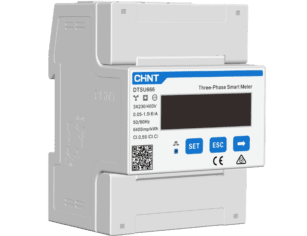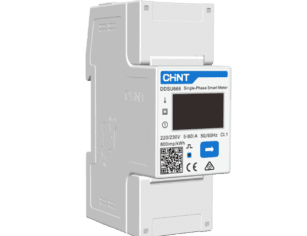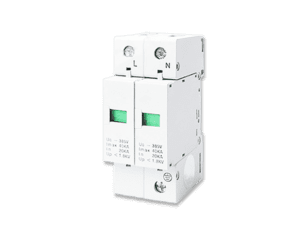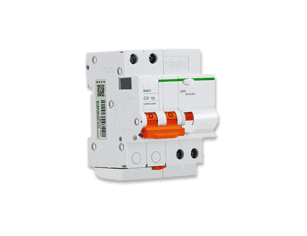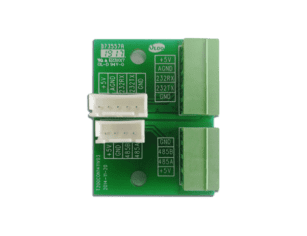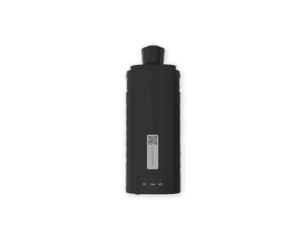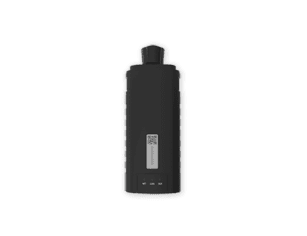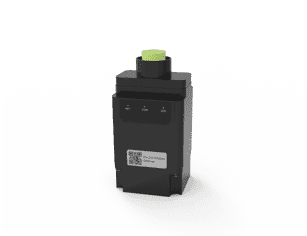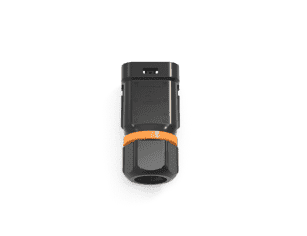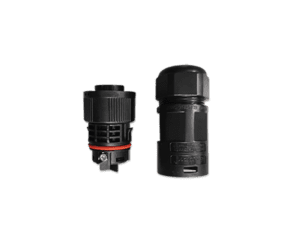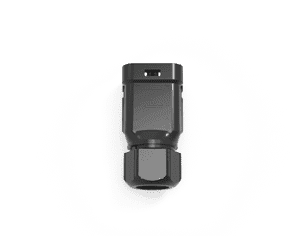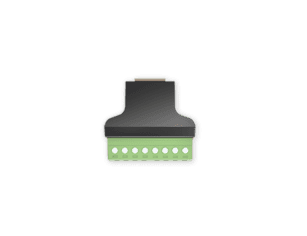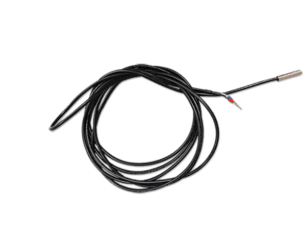Hybrid-Wechselrichter: Der ultimative Leitfaden zur Einsparung von Solarenergie
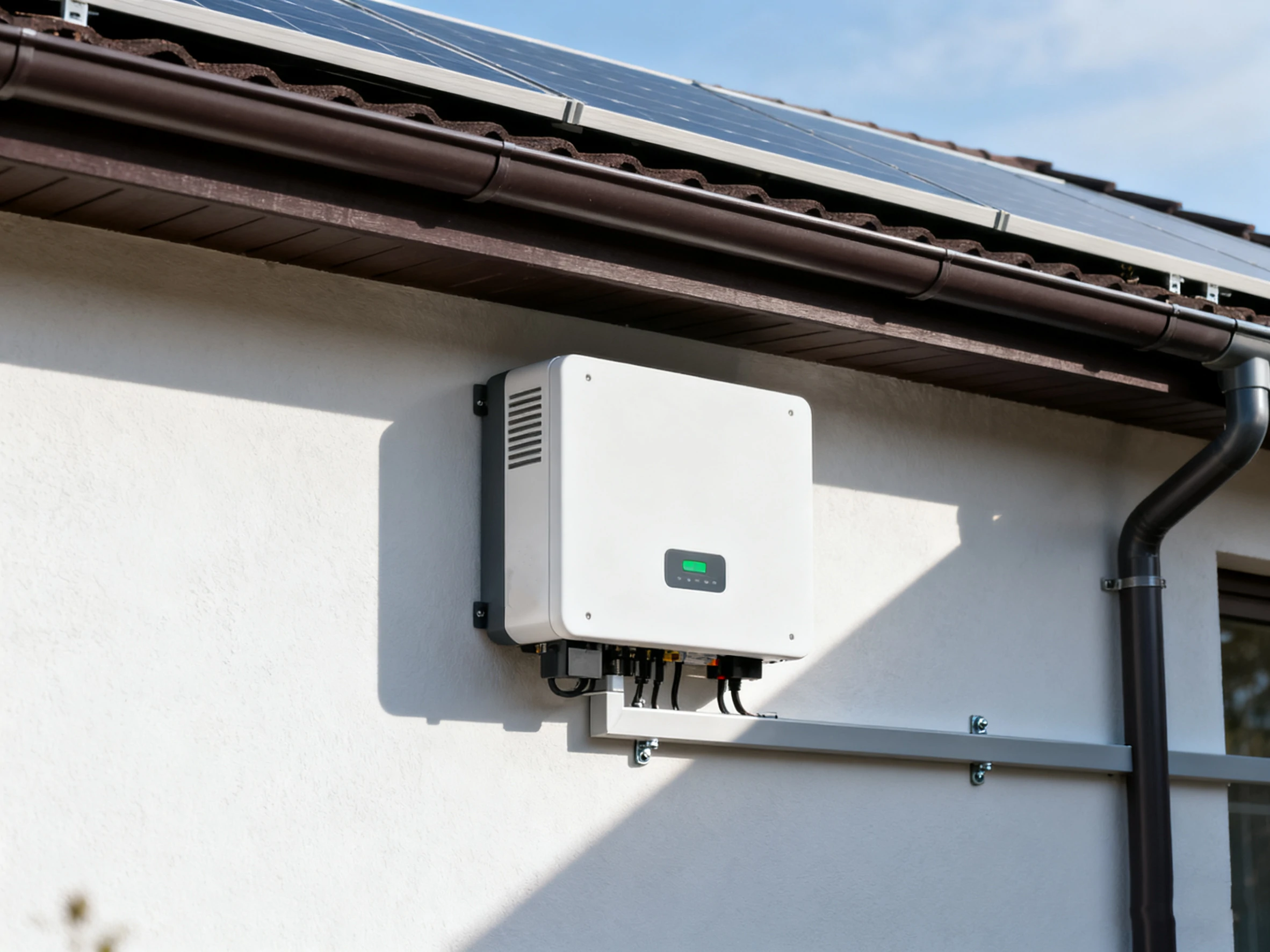
Inhaltsübersicht
Hybrid-Wechselrichter verändern die Art und Weise, wie Hausbesitzer und Unternehmen ihre Solarenergiesysteme verwalten. Im Gegensatz zu herkömmlichen Solarwechselrichtern kombinieren diese innovativen Geräte die Funktionen eines Solarwechselrichters und eines Batteriewechselrichters und ermöglichen es Ihnen, Strom effizienter zu speichern, zu nutzen und zu verwalten. Ganz gleich, ob Sie die Abhängigkeit vom Stromnetz verringern, Ihre Stromrechnungen senken oder eine unterbrechungsfreie Stromversorgung bei Stromausfällen sicherstellen möchten - Hybrid-Wechselrichter bieten eine vielseitige Lösung. In diesem Leitfaden erfahren Sie, wie Hybrid-Wechselrichter funktionieren, welche Vor- und Nachteile sie haben und warum sie die ideale Wahl für Ihre Solaranlage sein könnten. Am Ende werden Sie verstehen, wie Hybrid-Wechselrichter Ihre Energieunabhängigkeit verbessern und Ihr Solarsystem intelligenter und effizienter machen können.
Was ist ein Hybrid-Wechselrichter?
Ein Hybrid-Wechselrichter ist ein fortschrittliches Gerät, das die Funktionen eines herkömmlichen Solarwechselrichters und eines Batteriewechselrichters in einem einzigen Gerät vereint. Diese Integration ermöglicht die Umwandlung von Gleichstrom (DC), der von Solarzellen erzeugt wird, in Wechselstrom (AC), der für den Betrieb von Haushaltsgeräten verwendet werden kann. Außerdem steuert er das Laden und Entladen von Batterien und ermöglicht so die Speicherung von Energie für den späteren Gebrauch.
Hauptmerkmale von Hybrid-Wechselrichtern
- DC-AC-Umwandlung: Wandelt Gleichstrom von Solarmodulen in Wechselstrom für den Hausgebrauch um.
- Batterie-Management: Verwaltet die Lade- und Entladezyklen der angeschlossenen Batterien.
- Netzinteraktion: Ermöglicht den Energieaustausch mit dem Stromnetz und damit den Import und Export von Energie.
- Erweiterte Überwachung: Ermöglicht die Überwachung und Kontrolle von Energieerzeugung und -verbrauch in Echtzeit.
Funktionsweise von Hybrid-Wechselrichtern
Hybrid-Wechselrichter arbeiten durch intelligente Steuerung des Stromflusses aus verschiedenen Quellen:
- Solare Stromerzeugung: Sonnenkollektoren erzeugen bei Tageslicht Gleichstrom.
- Eigenverbrauch: Der Wechselrichter nutzt den erzeugten Solarstrom zunächst zur Deckung des unmittelbaren Energiebedarfs des Haushalts.
- Aufladen der Batterien: Überschüssige Solarenergie wird zum Laden der angeschlossenen Batterien verwendet.
- Netz-Export: Sobald die Batterien vollständig aufgeladen sind, kann überschüssige Energie in das Stromnetz eingespeist werden (sofern die örtlichen Vorschriften dies zulassen).
- Entladung der Batterien: In Zeiten geringer Sonneneinstrahlung oder nachts entnimmt der Wechselrichter gespeicherte Energie aus den Batterien, um den Haushalt zu versorgen.
- Netzbezug: Wenn der Batteriespeicher erschöpft ist, kann der Wechselrichter Energie aus dem Netz importieren, um den Bedarf des Haushalts zu decken.
Hybrid-Wechselrichter vs. normaler Wechselrichter: Ein detaillierter Vergleich
Wenn es um das Management von Solarenergie geht, sind nicht alle Wechselrichter gleich. Die Unterschiede zwischen Hybrid-Wechselrichtern und herkömmlichen Solar-Wechselrichtern zu verstehen, ist der Schlüssel zur Wahl der richtigen Lösung für Ihr Haus oder Ihr Unternehmen. Zwar wandeln beide Geräte Gleichstrom von Solarmodulen in Wechselstrom um, doch bieten Hybrid-Wechselrichter im Vergleich zu herkömmlichen Systemen mehr Flexibilität, Effizienz und Kontrolle.
Verwaltung der Energiequellen
Hybrid-Wechselrichter zeichnen sich dadurch aus, dass sie auf intelligente Weise mehrere Energiequellen gleichzeitig verwalten können. Ein typischer Solarwechselrichter verarbeitet nur die Energie, die direkt von den Solarmodulen kommt, und speist sie direkt in Ihr Haus oder das Stromnetz ein. Hybrid-Wechselrichter hingegen koordinieren die Energie von Solarmodulen, Batteriespeichern und dem Stromnetz.
So kann ein Hybrid-Wechselrichter beispielsweise tagsüber Ihre Haushaltsgeräte vorrangig mit Solarenergie versorgen. Überschüssige Energie wird in Batterien für die spätere Nutzung gespeichert, während überschüssiger Strom bei Bedarf in das Netz eingespeist werden kann. Diese Art der Energieverwaltung bietet Hausbesitzern eine unvergleichliche Flexibilität und stellt sicher, dass der Strom immer dann zur Verfügung steht, wenn er am meisten gebraucht wird.
Backup-Energiekapazitäten
Einer der größten Vorteile von Hybrid-Wechselrichtern gegenüber normalen Solarwechselrichtern ist ihre Fähigkeit, bei Netzausfällen Notstrom zu liefern. Herkömmliche Solarwechselrichter schalten sich in der Regel ab, wenn das Stromnetz ausfällt, weil die Vorschriften zur Vermeidung von Insellösungen dies verhindern, so dass Hausbesitzer auch bei Sonnenschein ohne Strom dastehen.
Hybrid-Wechselrichter können jedoch auf gespeicherte Batterieenergie zurückgreifen, um wichtige Geräte wie Kühlschränke, Lampen oder sogar Heimbüros in Betrieb zu halten. Diese Fähigkeit macht Hybrid-Wechselrichter zu einer idealen Wahl für Gebiete, die anfällig für Stromausfälle sind, oder für Nutzer, die ihre Energieunabhängigkeit bewahren wollen, ohne sich vollständig auf das Stromnetz zu verlassen.
Effizienz und Energiemanagement
Die Effizienz ist ein weiterer Bereich, in dem sich Hybrid-Wechselrichter auszeichnen. Durch intelligentes Management der Energieverteilung zwischen Solarstromerzeugung, Batteriespeicher und Netznutzung maximieren Hybridwechselrichter den Eigenverbrauch von Solarenergie und senken die Stromkosten.
So kann ein Hybrid-Wechselrichter in Zeiten des Spitzenstromtarifs automatisch gespeicherte Batterieenergie nutzen, anstatt sie aus dem Netz zu beziehen. Umgekehrt kann er in Schwachlastzeiten die Batterien zu geringeren Kosten aufladen. Dieses dynamische Energiemanagement kann ein herkömmlicher Solarwechselrichter in der Regel nicht bewältigen, so dass Hybridwechselrichter auf lange Sicht weitaus kostengünstiger sind.
Systemkomplexität und Kosten
Hybrid-Wechselrichter bieten zwar fortschrittliche Funktionen, bringen aber auch zusätzliche Komplexität mit sich. Die Integration von Batteriesystemen, Netzinteraktion und intelligentem Energiemanagement erfordert eine sorgfältige Planung und professionelle Installation. Diese Komplexität spiegelt sich in den höheren Anschaffungskosten im Vergleich zu einem Standard-Solarwechselrichter wider.
Für Hausbesitzer, die Wert auf Energiesicherheit, langfristige Einsparungen und Umweltvorteile legen, zahlt sich die Investition jedoch oft aus. Bei ordnungsgemäßer Wartung und Überwachung können Hybrid-Wechselrichter jahrelang zuverlässig und effizient arbeiten und sind damit eine gute Wahl für moderne Solarenergiesysteme.
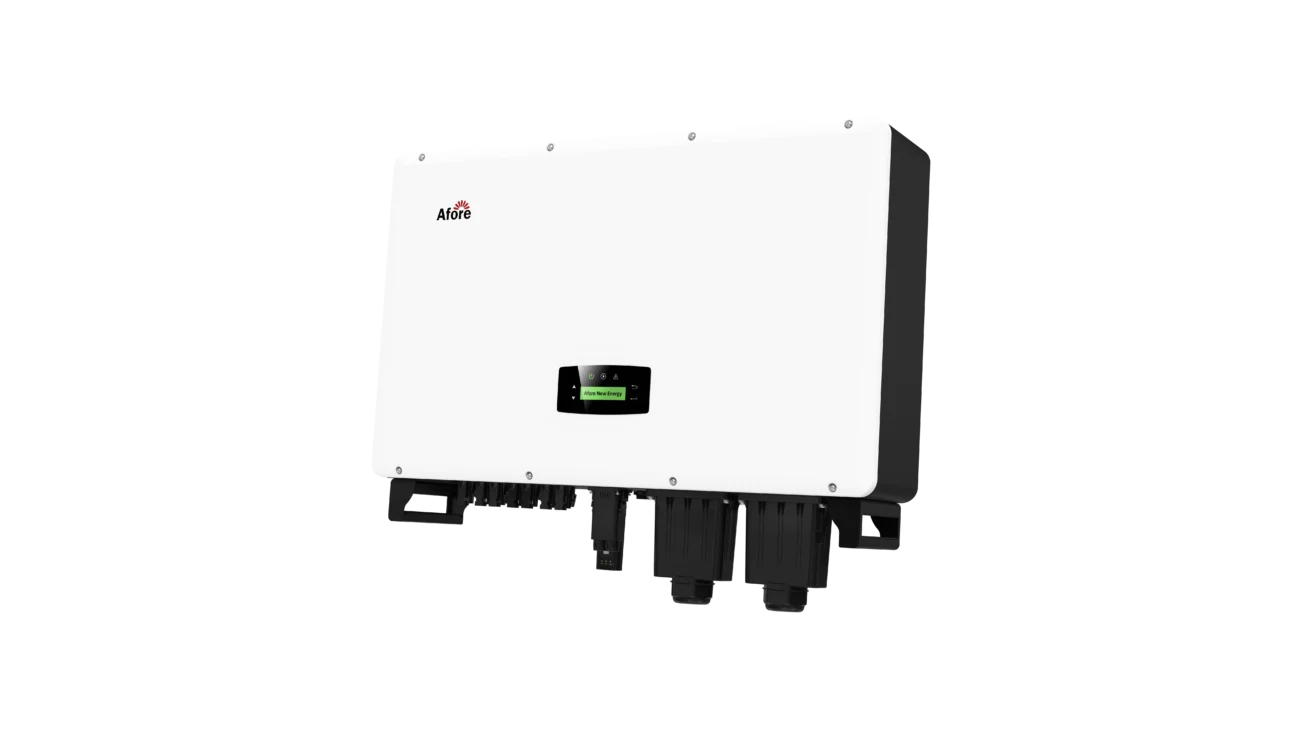
Vorteile von Hybrid-Wechselrichtern
Hybrid-Wechselrichter sind schnell zu einer beliebten Wahl für Hausbesitzer und Unternehmen geworden, die ihre Solarenergiesysteme optimieren wollen. Im Gegensatz zu herkömmlichen Solarwechselrichtern wandeln Hybridwechselrichter nicht nur Strom um, sondern verwalten auch auf intelligente Weise Energie aus verschiedenen Quellen und bieten eine Reihe von Vorteilen, die über die reine Energieumwandlung hinausgehen.
Verbesserte Energieunabhängigkeit
Einer der wichtigsten Vorteile von Hybrid-Wechselrichtern ist die Möglichkeit, Solarenergie unabhängig vom Netz zu speichern und zu nutzen. Durch die Kombination eines Solarwechselrichter Mit dem Batteriemanagement können Hausbesitzer überschüssige Energie, die tagsüber erzeugt wird, speichern und in der Nacht oder bei Stromausfällen nutzen. Dies verringert die Abhängigkeit vom Stromnetz und bietet Energiesicherheit auch in Gebieten mit instabiler Stromversorgung. Für viele bedeutet dies ein beruhigendes Gefühl, da sie wissen, dass wichtige Geräte wie Kühlschränke, Lampen oder Haussicherheitssysteme unabhängig von den äußeren Bedingungen weiter betrieben werden können.
Langfristige Kosteneinsparungen
Die Anschaffungskosten von Hybrid-Wechselrichtern sind zwar höher als die von Standard-Solarwechselrichtern, doch können sie langfristig erhebliche Einsparungen bringen. Durch die Speicherung überschüssiger Energie in Batterien und die Optimierung des Eigenverbrauchs tragen Hybrid-Wechselrichter zur Senkung der Stromrechnungen bei. So können Haushalte beispielsweise die Spitzenlasttarife des Stromnetzes umgehen, indem sie sich auf den gespeicherten Solarstrom verlassen. Im Laufe der Zeit können diese Einsparungen die anfängliche Investition ausgleichen, was Hybrid-Wechselrichter zu einer finanziell klugen Option für Hausbesitzer macht, die ihre Solarenergieerträge maximieren wollen.
Notstromversorgung bei Stromausfällen
Im Gegensatz zu herkömmlichen Solar-Wechselrichtern bieten Hybrid-Wechselrichter den entscheidenden Vorteil der Notstromversorgung. Wenn das Stromnetz ausfällt, schaltet ein Hybrid-Wechselrichter nahtlos auf Batteriestrom um und sorgt dafür, dass Ihr Haus mit Strom versorgt bleibt. Dies ist besonders wertvoll in Regionen, die zu Stromausfällen neigen, oder in Haushalten, die kontinuierlich Strom für medizinische Geräte, Heimbüros oder Sicherheitssysteme benötigen.
Verbesserte Energieeffizienz
Hybrid-Wechselrichter sind mit fortschrittlichen Energiemanagementsystemen ausgestattet, die die Effizienz maximieren. Sie können den Strom intelligent zwischen Solarmodulen, Batterien und dem Netz verteilen und so sicherstellen, dass kein erzeugter Strom verschwendet wird. Durch die Priorisierung der Nutzung von Solarenergie und die Speicherung von Überschüssen für eine spätere Verwendung erhöhen Hybrid-Wechselrichter die Gesamteffizienz Ihres Solarsystems im Vergleich zu einem Standard-Solarwechselrichter.
Vorteile für die Umwelt
Für umweltbewusste Hausbesitzer tragen Hybrid-Wechselrichter zur Verringerung des CO2-Fußabdrucks bei. Durch die Optimierung der Solarenergienutzung und die Minimierung der Abhängigkeit von durch fossile Brennstoffe erzeugtem Netzstrom fördern Hybrid-Wechselrichter einen nachhaltigen Energieverbrauch. Sie erleichtern es Haushalten, saubere Energie zu nutzen und gleichzeitig zu einer grüneren Umwelt beizutragen.
Skalierbarkeit und Flexibilität
Hybrid-Wechselrichter bieten eine flexible Plattform für zukünftige Erweiterungen. Hausbesitzer können problemlos weitere Solarmodule oder Batterien hinzufügen, wenn ihr Energiebedarf steigt, ohne das gesamte System ersetzen zu müssen. Diese Anpassungsfähigkeit macht Hybrid-Wechselrichter zu einer vorausschauenden Wahl für Familien, die planen, ihre Solarkapazität im Laufe der Zeit zu erhöhen.
Smart Home-Integration
Viele moderne Hybrid-Wechselrichter sind mit Überwachungs-Apps und Smart-Home-Integrationsfunktionen ausgestattet. Die Nutzer können die Energieerzeugung, den Batteriestatus und die Verbrauchsmuster in Echtzeit verfolgen und so Erkenntnisse zur Optimierung der Energienutzung gewinnen. Dieses Maß an Kontrolle erhöht den Komfort und ermöglicht es den Hausbesitzern, datengestützte Entscheidungen für die Energieeffizienz zu treffen.

Nachteile von Hybrid-Wechselrichtern
Hybrid-Wechselrichter bieten zwar viele Vorteile, aber es ist wichtig, ihre Grenzen zu kennen, bevor man eine Investition tätigt. Das Wissen um die potenziellen Nachteile hilft Hausbesitzern, fundierte Entscheidungen zu treffen, wenn sie eine Solaranlage aufrüsten oder installieren.
Höhere Anfangskosten
Einer der größten Nachteile von Hybrid-Wechselrichtern sind ihre Anschaffungskosten. Im Vergleich zu einem Standard-Solarwechselrichter sind Hybridwechselrichter aufgrund ihrer fortschrittlichen Funktionen, der Integration des Batteriemanagements und der intelligenten Energieoptimierung teurer. Während die langfristigen Einsparungen diese Anfangsinvestition ausgleichen können, kann der höhere Anschaffungspreis ein Hindernis für Haushalte oder kleine Unternehmen mit knappem Budget sein.
Komplexe Installation
Hybridwechselrichter erfordern im Vergleich zu herkömmlichen Solarwechselrichtern eine anspruchsvollere Installation. Die Integration von Solarmodulen, Batterien und Netzanbindung in ein System erfordert professionelles Fachwissen. Eine unsachgemäße Installation kann zu Ineffizienzen, verminderter Systemleistung oder sogar zu Sicherheitsrisiken führen. Aus diesem Grund erfordern die meisten Hybrid-Wechselrichtersysteme zertifizierte Installateure, was die Gesamtkosten und die Planungszeit in die Höhe treiben kann.
Anforderungen an die Wartung
Da Hybrid-Wechselrichter mehrere Komponenten verwalten - Solarmodule, Batterien und das Zusammenspiel mit dem Netz - erfordern sie eine regelmäßigere Wartung. Insbesondere die Batterien müssen regelmäßig überprüft werden, um ordnungsgemäße Lade- und Entladezyklen zu gewährleisten und einen Kapazitätsabbau zu verhindern. Im Gegensatz zu Standard-Solarwechselrichtern, die oft nur minimale Wartung benötigen, müssen Hybridwechselrichter ständig gewartet werden, um eine optimale Leistung zu gewährleisten.
Potenzielle technische Komplexität
Hybridwechselrichter sind mit intelligenten Energiemanagementfunktionen, Überwachungs-Apps und manchmal auch mit Fernsteuerungsfunktionen ausgestattet. Diese Funktionen sind zwar vorteilhaft, können aber auch eine zusätzliche Komplexität für technisch nicht versierte Nutzer bedeuten. Um zu verstehen, wie das System zu konfigurieren ist, wie Leistungsdaten zu interpretieren sind und wie Probleme zu beheben sind, sind möglicherweise zusätzliche Schulungen oder professionelle Unterstützung erforderlich.
Überlegungen zu Platz und Integration
Hybride Wechselrichtersysteme umfassen oft eine oder mehrere Batterieeinheiten, die einen speziellen Platz in Ihrem Haus oder Ihrer Garage benötigen. Darüber hinaus kann die kombinierte Verkabelung und Verbindung von Solarmodulen, Batterien und Netzsystemen eine sorgfältige Planung erfordern, um Sicherheit und Effizienz zu gewährleisten. Dies kann eine Einschränkung für Hausbesitzer mit begrenztem Platz oder für diejenigen sein, die eine einfachere Solaranlage suchen.
Langfristige Kosten für den Batteriewechsel
Während Hybridwechselrichter selbst langlebig sind, haben die von ihnen verwalteten Batterien eine begrenzte Lebensdauer, die je nach Typ und Nutzung zwischen 5 und 15 Jahren liegt. Der Austausch von Batterien kann kostspielig sein, und diese laufenden Wartungskosten sollten in die Gesamtkosten für ein Hybrid-Wechselrichtersystem einkalkuliert werden.
Lebensdauer von Hybrid-Wechselrichtern
Für jeden, der eine Investition in Solarenergie in Erwägung zieht, ist es wichtig, die Lebensdauer von Hybrid-Wechselrichtern zu verstehen. Im Gegensatz zu einem Standard-Solarwechselrichter, der sich in der Regel nur auf die Umwandlung von Gleichstrom in Wechselstrom konzentriert, verwalten Hybridwechselrichter mehrere Energiequellen, einschließlich Batterien und Netzstrom. Diese zusätzliche Komplexität macht die Bewertung ihrer Langlebigkeit noch wichtiger für die Planung von Kosten und Wartung.
Typische Lebenserwartung
Hybrid-Wechselrichter haben im Allgemeinen eine Lebensdauer von 10 bis 15 Jahren, je nach Marke, Technologie und Nutzungsmuster. Qualitativ hochwertige Hybridwechselrichter von namhaften Herstellern übertreffen diese Spanne bei richtiger Pflege oft, während Modelle der unteren Preisklasse die Erwartungen möglicherweise nicht erfüllen. Im Vergleich dazu hält ein typischer Solarwechselrichter ohne Batteriemanagement in der Regel etwa 8 bis 12 Jahre, was bedeutet, dass Hybridwechselrichter bei richtiger Pflege eine vergleichbare oder etwas längere Lebensdauer bieten können.
Faktoren, die die Lebenserwartung beeinflussen
Wie lange ein Hybrid-Wechselrichter effizient arbeitet, hängt von mehreren Faktoren ab:
1. Qualität der Komponenten
Die im Wechselrichter verwendeten Materialien und die interne Elektronik spielen eine entscheidende Rolle. Hochwertige Hybrid-Wechselrichter sind so konzipiert, dass sie Spannungsschwankungen, Temperaturschwankungen und Dauerbetrieb standhalten. Die Investition in eine bekannte Marke gewährleistet eine höhere Zuverlässigkeit und eine längere Lebensdauer.
2. Umweltbedingungen
Temperatur, Feuchtigkeit, Staub und Nässe können die Langlebigkeit von Hybrid-Wechselrichtern beeinträchtigen. Systeme, die in rauen Klimazonen installiert werden, benötigen möglicherweise zusätzlichen Schutz, wie z. B. belüftete Gehäuse oder schattige Installationsbereiche, um die Lebensdauer zu verlängern.
3. Praktiken der Instandhaltung
Regelmäßige Inspektionen, Software-Updates und Überprüfungen des Batteriezustands können die Lebensdauer eines Hybridwechselrichters erheblich verlängern. Die Gewährleistung sicherer Verbindungen und die Überwachung der Leistung durch Apps oder Kontrollsysteme helfen, Probleme frühzeitig zu erkennen, bevor sie Schäden verursachen.
4. Last- und Nutzungsmuster
Auch die Art der Nutzung des Wechselrichters wirkt sich auf seine Lebensdauer aus. Systeme, die häufig mit oder nahe der maximalen Kapazität betrieben werden oder schnelle Schwankungen im Strombedarf aufweisen, können schneller verschleißen als Systeme mit ausgeglichenen und gleichmäßigen Lasten.
Anzeichen dafür, dass Ihr Hybrid-Wechselrichter das Ende seiner Lebensdauer erreicht hat
Selbst die langlebigsten Hybrid-Wechselrichter zeigen irgendwann Anzeichen von Alterung. Häufige Indikatoren sind:
- Geringerer Wirkungsgrad bei der Umwandlung von Sonnenenergie.
- Unregelmäßige Lade- oder Entladezyklen der Batterie.
- Häufige Fehlermeldungen oder Alarme von Überwachungsanwendungen.
- Hörbare Geräusche wie Brummen oder Klicken von internen Komponenten.
Wenn diese Anzeichen frühzeitig erkannt werden, können Hausbesitzer einen Austausch planen, bevor es zu größeren Störungen kommt, und so die ständige Verfügbarkeit von Energie und eine optimale Leistung sicherstellen.
Verlängern Sie die Lebensdauer Ihres Hybrid-Wechselrichters
Um die Lebensdauer Ihres Hybridwechselrichters zu maximieren:
- Wählen Sie Qualitätsgeräte: Entscheiden Sie sich für vertrauenswürdige Marken mit starken Garantien.
- Vor extremen Bedingungen schützen: In schattigen, belüfteten Bereichen und vor Feuchtigkeit geschützt aufstellen.
- Planen Sie regelmäßige Wartungsarbeiten ein: Überprüfen Sie die Batterie, reinigen Sie sie und aktualisieren Sie die Software.
- Überwachen Sie die Systemleistung: Nutzen Sie Apps oder die in den Wechselrichtern integrierten Überwachungstools, um Frühwarnzeichen zu erkennen.
Wenn Hausbesitzer diese Praktiken befolgen, können sie sicherstellen, dass ihr Hybrid-Wechselrichter - und die Komponenten des Solar-Wechselrichters, in die er integriert ist - mehr als ein Jahrzehnt lang zuverlässig Energie liefern und somit eine lohnende Investition in langfristige Energieunabhängigkeit darstellen.
Kann ein Hybrid-Wechselrichter ohne Batterie betrieben werden?
Eine der häufigsten Fragen, die sich Hausbesitzer stellen, wenn sie einen Hybrid-Wechselrichter in Erwägung ziehen, ist die Frage, ob dieser auch ohne Batterie funktionieren kann. Die kurze Antwort lautet ja, aber die vollständige Antwort hängt davon ab, wie Sie Ihre Solaranlage nutzen wollen und welche Vorteile Sie sich davon versprechen.
Funktionsfähigkeit ohne Batterie
Hybrid-Wechselrichter sind so konzipiert, dass sie Energie aus mehreren Quellen verwalten können, z. B. aus Solarzellen, dem Stromnetz und Batterien. Wenn keine Batterie installiert ist, kann der Wechselrichter immer noch als Solarwechselrichter arbeiten und Gleichstrom von Solarmodulen in Wechselstrom für den sofortigen Gebrauch im Haushalt umwandeln. Überschüssige Energie, die während des Tages erzeugt wird, kann in das Stromnetz eingespeist werden, wenn Ihr System Net Metering unterstützt.
Wenn Ihr Haushalt zum Beispiel den größten Teil der erzeugten Solarenergie selbst verbraucht, kann ein Hybrid-Wechselrichter ohne Batterie Ihre Abhängigkeit vom Stromnetz verringern und Ihre Energierechnungen senken. Er funktioniert im Wesentlichen wie ein fortschrittlicher Solarwechselrichter mit intelligenter Netzinteraktion.
Einschränkungen beim Betrieb ohne Batterie
Ein Hybrid-Wechselrichter kann zwar technisch gesehen ohne Batterie betrieben werden, aber einige seiner Hauptvorteile werden dadurch geschmälert:
- Keine Notstromversorgung: Ohne Batterie kann Ihr System während eines Netzausfalls keinen Strom liefern. Selbst wenn die Sonne scheint, wird die Stromversorgung Ihres Hauses unterbrochen, wenn das Stromnetz ausfällt.
- Begrenzte Energiespeicherung: Sie können überschüssige Solarenergie nicht für die Nutzung in der Nacht oder an bewölkten Tagen speichern. Dies verringert die Gesamt-Selbstverbrauchsrate und die potenziellen Kosteneinsparungen.
- Weniger optimiertes Energiemanagement: Viele Hybrid-Wechselrichter verfügen über intelligente Algorithmen, die den Energiefluss zwischen Solarstromerzeugung, Batteriespeicher und Netznutzung ausgleichen. Ohne eine Batterie erreicht das System möglicherweise nicht sein volles Effizienzpotenzial.
Wann ein Betrieb ohne Batterie sinnvoll ist
Der Betrieb eines Hybrid-Wechselrichters ohne Batterie kann in bestimmten Situationen dennoch sinnvoll sein:
- An das Stromnetz angeschlossene Häuser: Wenn Sie in einem Gebiet mit einem zuverlässigen Stromnetz leben und Net-Metering verfügbar ist, kann der Export von überschüssigem Solarstrom in das Stromnetz immer noch finanzielle Vorteile bieten.
- Kosteneinschränkungen: Batterien erhöhen die Anfangsinvestition erheblich, so dass der Verzicht auf die Batterie die Anfangskosten senken kann.
- Schrittweise Systemerweiterungen: Manche Hausbesitzer ziehen es vor, mit einer Solarwechselrichteranlage zu beginnen und später Batterien hinzuzufügen, wenn der Energiebedarf steigt oder das Budget es zulässt.
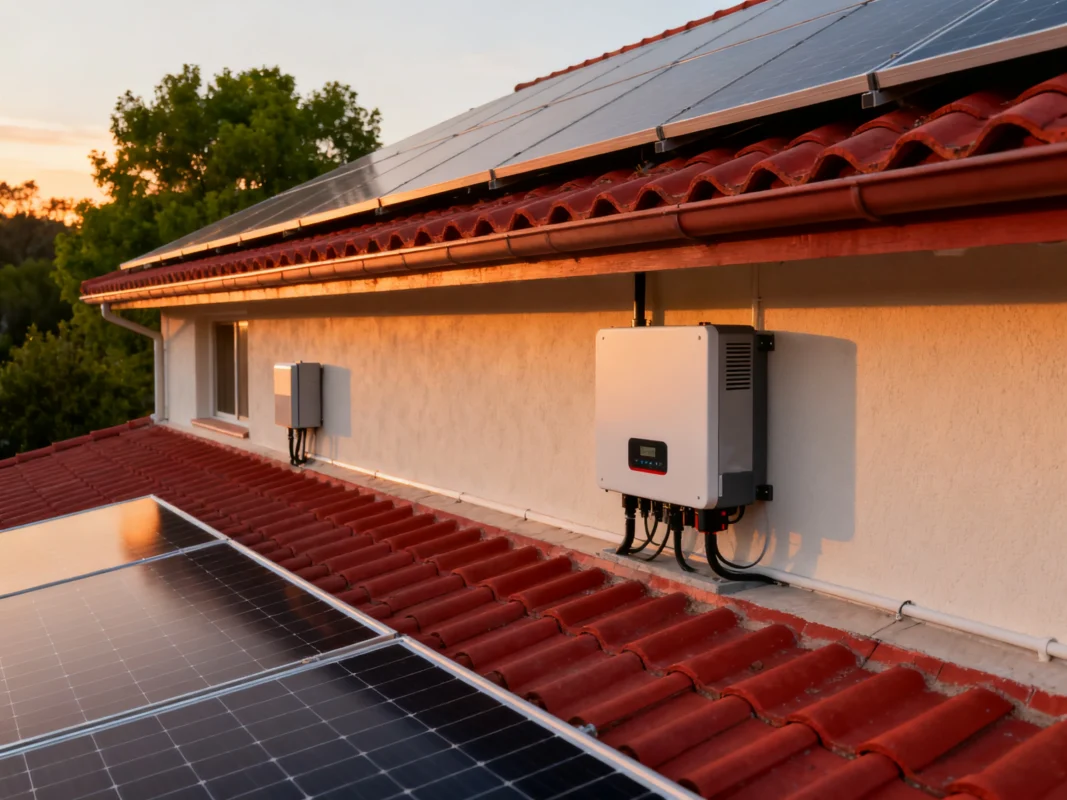
Lohnt sich die Investition in einen Hybrid-Solarwechselrichter?
Die Entscheidung, in einen Hybridwechselrichter zu investieren, ist eine der wichtigsten Entscheidungen für jeden, der eine Solarstromanlage plant. Während herkömmliche Solarwechselrichter eine einfache Umwandlung von Gleich- in Wechselstrom bieten, kombinieren Hybridwechselrichter Solar-, Batterie- und Netzmanagement und bieten damit erweiterte Funktionen und langfristige Vorteile. Aber sind diese Vorteile die höheren Anschaffungskosten wert?
Kosten-Nutzen-Analyse
Hybrid-Wechselrichter haben aufgrund ihrer ausgefeilten Technologie und des integrierten Batteriemanagements in der Regel eine höhere Anfangsinvestition als Standard-Solarwechselrichter. Diese Kosten können jedoch mit der Zeit ausgeglichen werden:
- Energieeinsparungen: Indem sie überschüssige Solarenergie in Batterien speichern, um sie in Spitzenzeiten zu nutzen, verringern Hybrid-Wechselrichter die Abhängigkeit vom Stromnetz und senken die Energierechnung.
- Backup-Strom: Hybrid-Wechselrichter sorgen für eine unterbrechungsfreie Stromversorgung bei Netzausfällen, verhindern kostspielige Unterbrechungen und schützen empfindliche Geräte.
- Effizientes Energiemanagement: Intelligente Algorithmen sorgen für eine optimale Nutzung der Solarstromerzeugung und des Batteriespeichers und maximieren so die Effizienz des Gesamtsystems.
Für Hausbesitzer, die Wert auf langfristige Einsparungen und Energieunabhängigkeit legen, rechtfertigen diese Vorteile oft die höheren Anschaffungskosten.
Wer profitiert am meisten von Hybrid-Wechselrichtern?
Hybrid-Wechselrichter sind für bestimmte Nutzertypen besonders lohnenswert:
- Haushalte mit instabiler Netzversorgung: Wenn Sie in einem Gebiet leben, das für Stromausfälle anfällig ist, sorgen Hybrid-Wechselrichter mit Batteriespeicher für eine kontinuierliche Stromversorgung.
- Umweltbewusste Hausbesitzer: Diejenigen, die die Solarenergienutzung maximieren und den CO2-Fußabdruck reduzieren wollen, profitieren von effizienter Energiespeicherung und intelligentem Verbrauch.
- Haushalte mit hohen Energiekosten: In Regionen mit hohen Stromtarifen können Hybrid-Wechselrichter die monatlichen Rechnungen durch die Optimierung der gespeicherten Solarenergie erheblich senken.
- Zukunftssichere Haushalte: Hausbesitzer, die eine Erweiterung ihrer Solarkapazität planen, können ein Hybrid-Wechselrichtersystem problemlos durch das Hinzufügen weiterer Batterien oder Paneele aufstocken.
Langfristige Verlässlichkeit und Sicherheit
Hybrid-Wechselrichter sind für eine lange Lebensdauer ausgelegt und werden oft mit umfassenden Garantien von renommierten Herstellern geliefert. So haben Sie die Gewissheit, dass Ihr Solarsystem zuverlässig und effizient ist und sich an den sich ändernden Energiebedarf anpassen kann. Im Gegensatz zu Standard-Solarwechselrichtern kombinieren Hybridwechselrichter die sofortige Energieumwandlung mit langfristigen Speicherlösungen, was sie zu einer vielseitigen Wahl für den modernen Hausbesitzer macht.
Häufig gestellte Fragen
-
Was ist die Hauptfunktion eines Hybridwechselrichters?
Ein Hybrid-Wechselrichter kombiniert die Funktionen eines Solarwechselrichters und eines Batteriewechselrichters. Er wandelt Gleichstrom von Solarmodulen in Wechselstrom für den Hausgebrauch um und verwaltet den Energiefluss zwischen Solarstromerzeugung, Batteriespeicher und Netz. So können Hausbesitzer ihren Eigenverbrauch maximieren und die Stromversorgung auch bei Stromausfällen aufrechterhalten.
-
Kann ein Hybrid-Wechselrichter ohne Batterie funktionieren?
Ja, Hybrid-Wechselrichter können ohne Batterie betrieben werden. In diesem Modus funktionieren sie in erster Linie als Solarwechselrichter, der Sonnenlicht in nutzbaren Strom umwandelt und überschüssigen Strom ins Netz einspeist. Ohne eine Batterie haben Sie jedoch keine Reservestromversorgung bei Netzausfällen oder die Möglichkeit, überschüssige Energie für eine spätere Verwendung zu speichern.
-
Wie lange halten Hybrid-Wechselrichter normalerweise?
Hybrid-Wechselrichter haben im Allgemeinen eine Lebensdauer von 10 bis 15 Jahren. Die Lebensdauer hängt von Faktoren wie der Verarbeitungsqualität, den Umgebungsbedingungen, der Wartung und dem Nutzungsverhalten ab. Die Wahl einer renommierten Marke und die Durchführung regelmäßiger Wartungsarbeiten können die Langlebigkeit verlängern.
-
Sind Hybrid-Wechselrichter teurer als normale Solar-Wechselrichter?
Ja, Hybrid-Wechselrichter sind aufgrund ihrer fortschrittlichen Funktionen, der Integration von Batterien und intelligenten Energiemanagementfunktionen in der Regel teurer. Die Anschaffungskosten sind zwar höher, aber die langfristigen Einsparungen bei den Stromrechnungen und die zusätzlichen Vorteile rechtfertigen die Investition oft.
-
Bieten Hybrid-Wechselrichter eine Notstromversorgung bei Stromausfällen?
Ganz genau. Einer der Hauptvorteile von Hybrid-Wechselrichtern ist ihre Fähigkeit, Strom aus angeschlossenen Batterien zu liefern, wenn das Netz ausfällt. Diese Funktion stellt sicher, dass wichtige Geräte, Leuchten und Apparate auch bei Stromausfällen betriebsbereit bleiben.
-
Können Hybrid-Wechselrichter für netzunabhängige Anwendungen eingesetzt werden?
Ja, Hybrid-Wechselrichter können in Verbindung mit einem ausreichenden Batteriespeicher auch in netzfernen Umgebungen eingesetzt werden. Sie verwalten die Energie von Solarmodulen und Batterien effizient und eignen sich daher für abgelegene Häuser, Hütten oder Gebiete ohne zuverlässigen Netzzugang.
-
Müssen Hybridwechselrichter professionell installiert werden?
Ja, eine professionelle Installation wird dringend empfohlen. Hybrid-Wechselrichter sind komplexer als Standard-Solarwechselrichter, da sie Solarmodule, Batterien und das Zusammenspiel mit dem Netz verwalten. Eine ordnungsgemäße Installation gewährleistet Sicherheit, optimale Leistung und die Einhaltung der örtlichen Elektrovorschriften.
-
Kann ich einen Hybrid-Wechselrichter selbst installieren?
Auch wenn es technisch möglich ist, wird von einer Selbstinstallation abgeraten. Eine unsachgemäße Installation kann zu Ineffizienz, Systemfehlfunktionen oder Sicherheitsrisiken führen. Die Beauftragung eines zertifizierten Installateurs stellt sicher, dass Ihr Hybrid-Wechselrichter sicher funktioniert und maximalen Nutzen bringt.
-
Welche Wartung ist bei Hybridwechselrichtern erforderlich?
Hybrid-Wechselrichter müssen regelmäßig gewartet werden, um ihre Leistung zu erhalten. Dazu gehören die Überprüfung des Batteriezustands, die Inspektion der Anschlüsse, die Reinigung der Komponenten und die Überwachung der Systemleistung über Apps oder integrierte Schnittstellen. Regelmäßige Wartung trägt dazu bei, Probleme frühzeitig zu erkennen und die Lebensdauer des Systems zu verlängern.
-
Gibt es Anreize für die Installation von Hybrid-Wechselrichtern?
In einigen Regionen gibt es staatliche Rabatte oder Anreize für die Installation von Hybrid-Wechselrichtern als Teil von Solarenergiesystemen. Diese Programme fördern die Nutzung erneuerbarer Energien, gleichen einen Teil der Anfangskosten aus und machen Hybridwechselrichter erschwinglicher.




